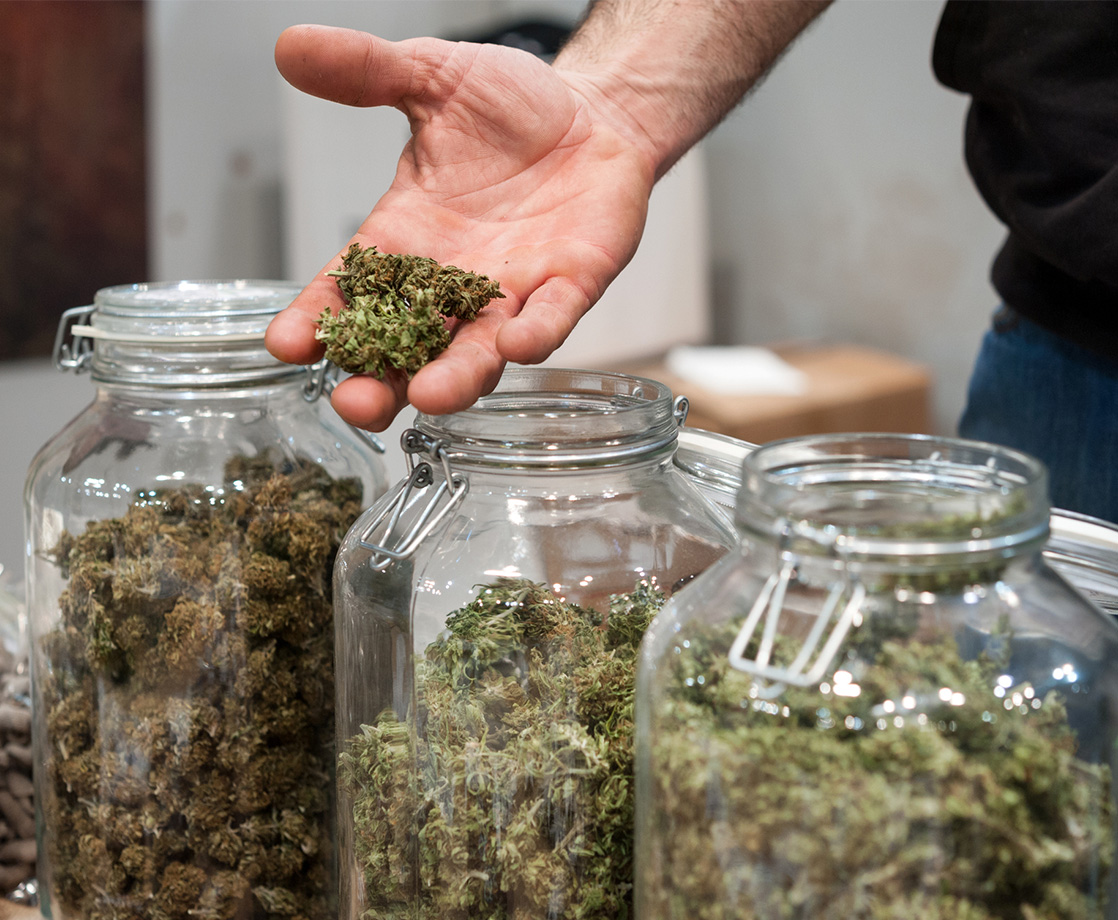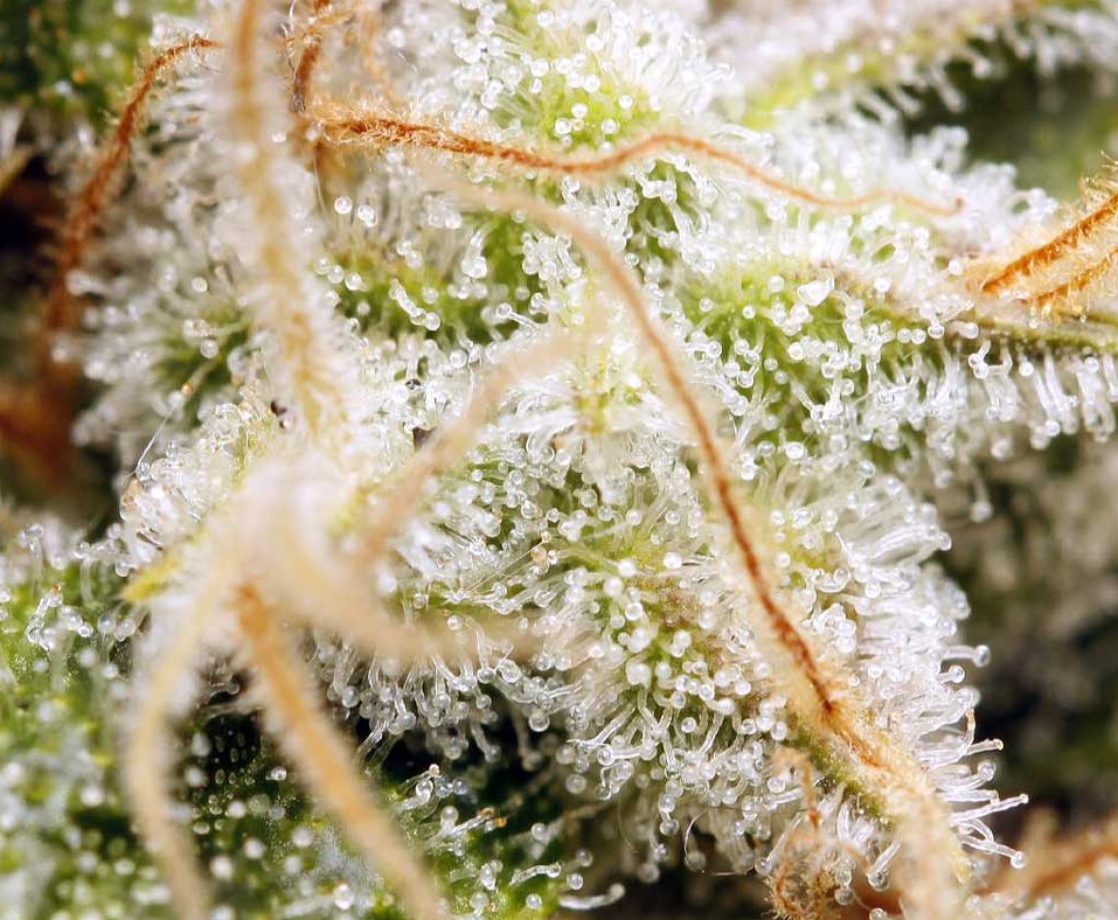“Marijuana affects the memory,” the classic line from the Dave Chappelle stoner comedy Half Baked quips. There’s truth to it, too.
Indeed, long-term use of marijuana plausibly affects an individual's’ verbal memory, according to a new study from the University of California, San Francisco and others. The degree to which this can affect a person’s daily life is unclear, though.
According to the long-term study recently conducted by UCSF researchers, every five years of marijuana use resulted in a person remembering one word fewer from a list of 15 words compared with those who did not smoke the plant. The study found that long-term use did not result in significant enough decreases in other areas of cognitive function to highlight, like processing speed or executive function, areas key to planning and focusing.
When studying the effects of marijuana use on the memory, researchers will look at a study participant’s ability to recall. The researcher will read 15 words from a list and then the participant will be asked to repeat them back. After a period of waiting, the participant will be asked to recall the words once again. The purpose of this is to examine the rate at which one forgets new information.
The UCSF researchers studied participants in a long-running Coronary Artery Risk Development in Young Adults (CARDIA) study, which included initially more than 5,000 adults between ages of 18 and 30. During follow-up visits, participants reported their marijuana use over the previous month.
Researchers tested the participants’ verbal memory, processing speed, and executive function once at the 25-year follow-up. Lifetime marijuana users performed worse in the three domains of cognitive function after adjustments for external factors like substance abuse and depression. The effect of marijuana use on verbal memory, the researchers deemed, represented the sole statistically significant result. That result has precedence in the academic literature on the topic.
"We found a dose-dependent independent association between cumulative lifetime exposure to marijuana and worsening verbal memory in middle age," the researchers imparted. They determined that marijuana affects the way in which information is processed in the hippocampus, an area of the brain posited as important for inhibition, memory and space.
The researchers highlighted the study’s shortcomings, such as self-reporting participants, and a cognitive test which came only once during the course of the 25 year-study.
The study, however, is in line with others on the effects of marijuana use and brain function. One thorough study in New Zealand showed persistent cannabis users demonstrated neuropsychological decline from childhood to midlife. A Northwestern University study demonstrated that teen cannabis users have poorer long-term memory in adulthood. Some marijuana use studies demonstrate a decrease in volume size in the hippocampus, amygdala, and cerebellum, while others have not shown such effects. Interestingly, marijuana users have reported drinking more alcohol per week than non-marijuana users in studies.
Jodi Gilman Ph.D , Assistant Professor at Harvard Medical School/Massachusetts General Hospital with the Center for Addiction Medicine, studies marijuana use in older adolescents between 18 and 25 years old – college students. According to Dr. Gilman, the UCSF study is significant because it looked at encoding.
“That’s learning, that’s your ability to learn new information,” Dr. Gilman expounded. “And they found that was impacted by marijuana use.” Researchers have heretofore been unsure of the effect of abstinence on formerly heavy users. The UCSF study also shone light on that question.
“Do you revert back to baseline levels twenty years later?” Dr. Gilman rhetorically asks me. “This is one of the first high profile studies to really look at people who have stopped.”
Dr. Gilman, like other researchers, conducts MRI brain scans on participants, looking for structural and functional effects of marijuana use on the brain, as well as psychological and behavioral testing. Her research team showed in their own study that greater gray matter density in the left nucleus accumbens could be associated with marijuana use, thus implying structural change due to using the substance.
“We have observed cognitive deficit in marijuana users versus non marijuana users in domains such as memory,” she explained. “We see that when people are acutely intoxicated with marijuana there is a huge deficit in the ability to remember information.” Marijuana acutely affects many parts of the brain for both the long and short terms: if people smoke on Friday, they still feel the effects on Monday.
Studies demonstrate that not only memory is affected by marijuana use. In addition, users have tested worse on executive function tests. The evidence that marijuana use affects memory, however, is more robust.
“Memory is affected by THC,” Dr. Gilman said. There are cannabinoid receptors in areas of the brain that are important for memory function like the hippocampus and prefrontal cortex. Other studies demonstrate that, in long-term heavy marijuana users, hippocampal volumes are smaller.
According to Dr. Gilman, the study of marijuana’s effects on the brain is a “hot topic” right now due the changing legal landscape of the last few years. Marijuana had been ignored in classic studies, which mostly looked at alcohol, cocaine and heroin in the brain. Thus, findings are still limited.
“I can tell you what we don’t know,” Dr. Gilman explains. “We don’t really know how much marijuana one needs to use in order to experience memory deficit.” That there is some sort of effect on the brain seems obvious to her.
“I think that when you smoke marijuana you are changing the brain, the way it signals,” Dr. Gilman said. “People get high so obviously you are changing brain chemistry, and if you do that over and over and over again, it is certainly plausible that you’ll have long-term consequences from flooding these cannabis receptors time and time again.” She highlights further findings.
“We find young adults who use marijuana have poorer memory, and we find it is in the learning phase – the encoding phase,” she said. “That’s very problematic to people who are learning new skills or are in High School and College trying to acquire knowledge. We are pretty certain marijuana is affecting this process.” How this affects ones day-to-day functioning still remains murky, Dr Gilman admits.
“We do these laboratory tests where I read lists of words, but we don’t know how that relates to real life function,” she elaborated. “If somebody is experiencing problems at work and they don’t remember the task that they’re supposed to complete, that’s a functional effect.” Dr. Gilman suggests a measured approach to interpreting the findings.
“We need to be careful in translating lab results to general statements about functioning,” she said. Although it is plausible marijuana plays a role in these deficits, there are still external factors which could explain the results.
“Nothing I do states with certainty that marijuana causes these changes,” she said. “If I do a brain scan of people who smoke marijuana and who do not, and I see differences in the brain, these are all associations.” Researchers can point out associations between what they find, but it’s plausible people were a certain way before they started using marijuana.
“It’s very hard to prove something in science,” Dr. Gilman said. “You acquire evidence that points in a direction, and, at this point, evidence is pointing towards the direction that marijuana detrimentally affects memory.”











